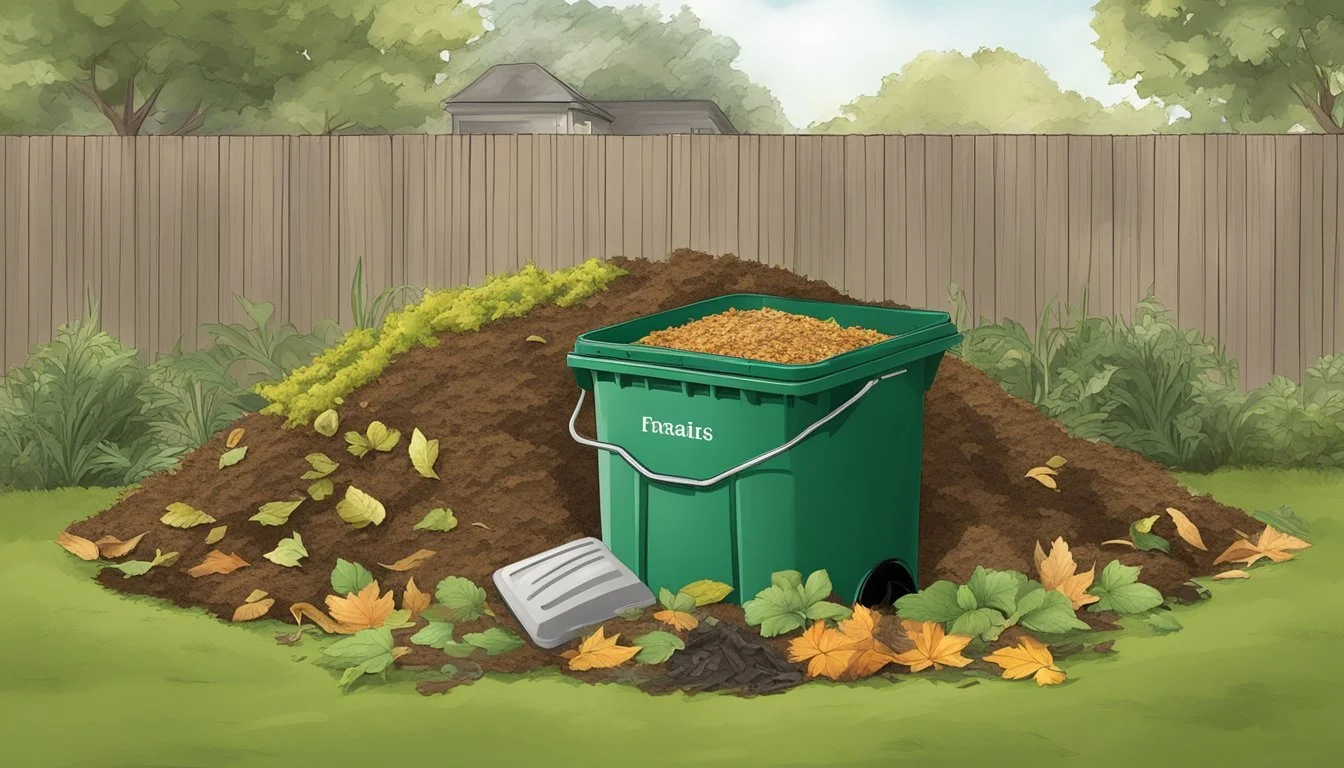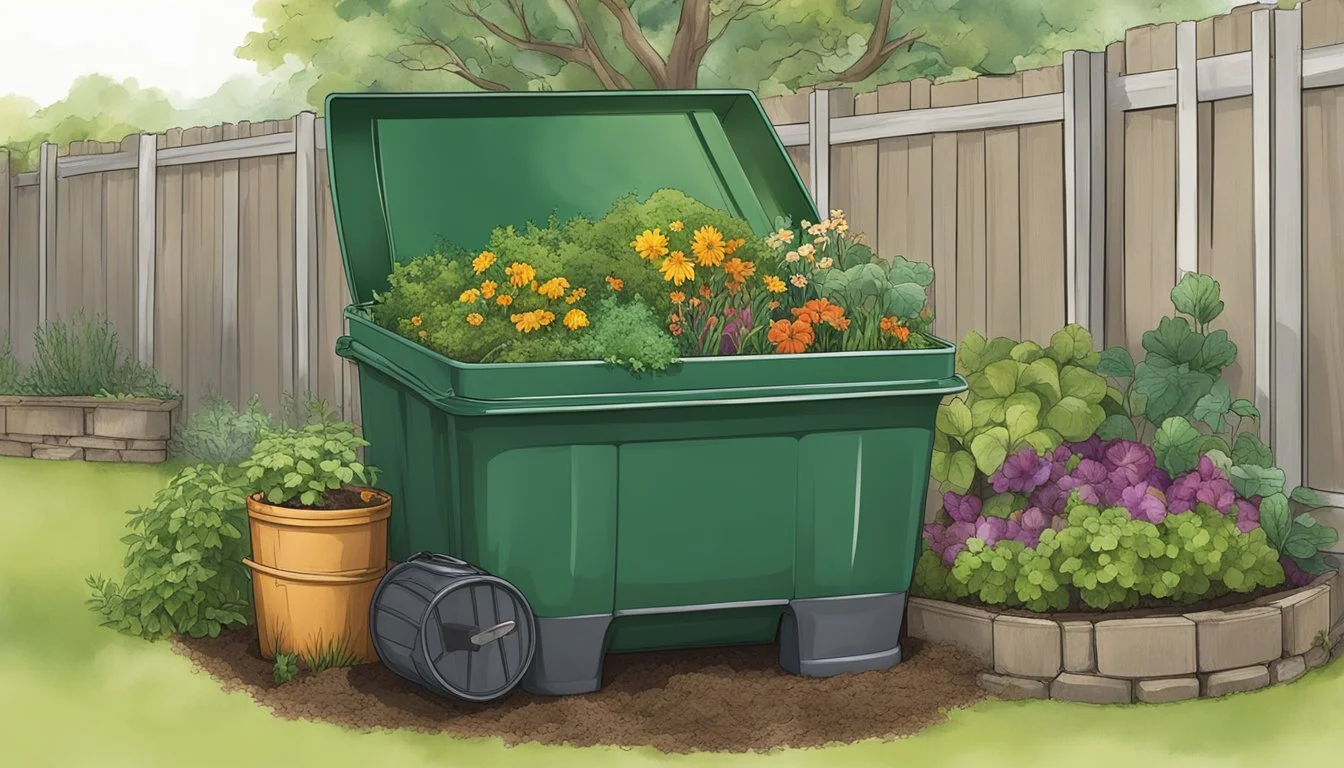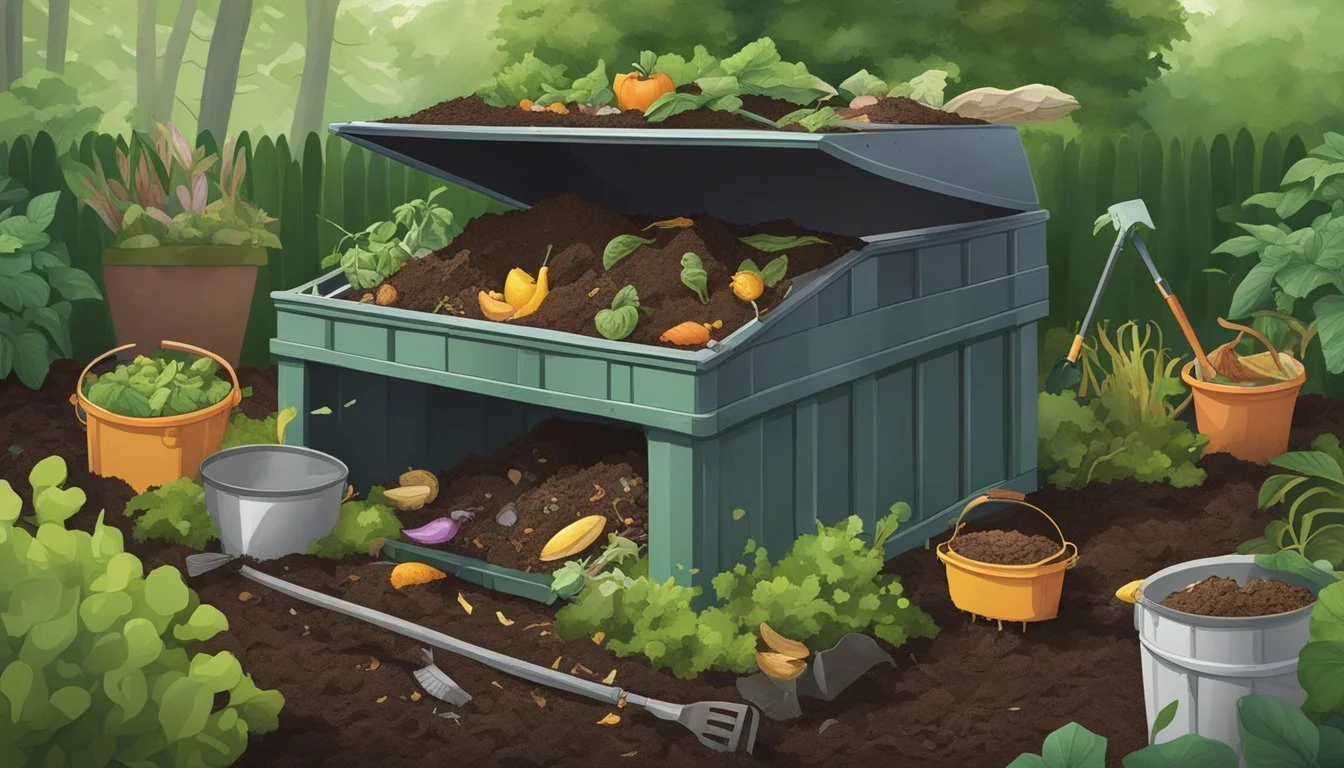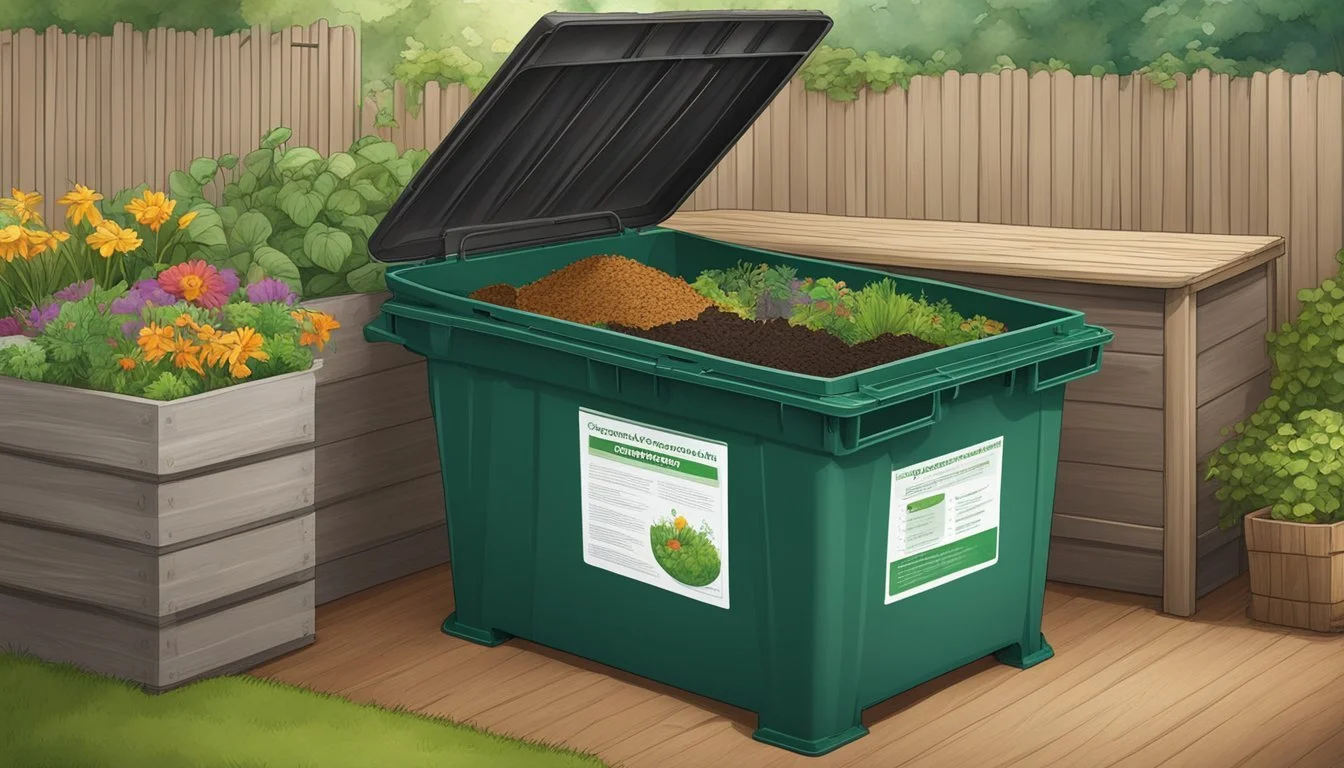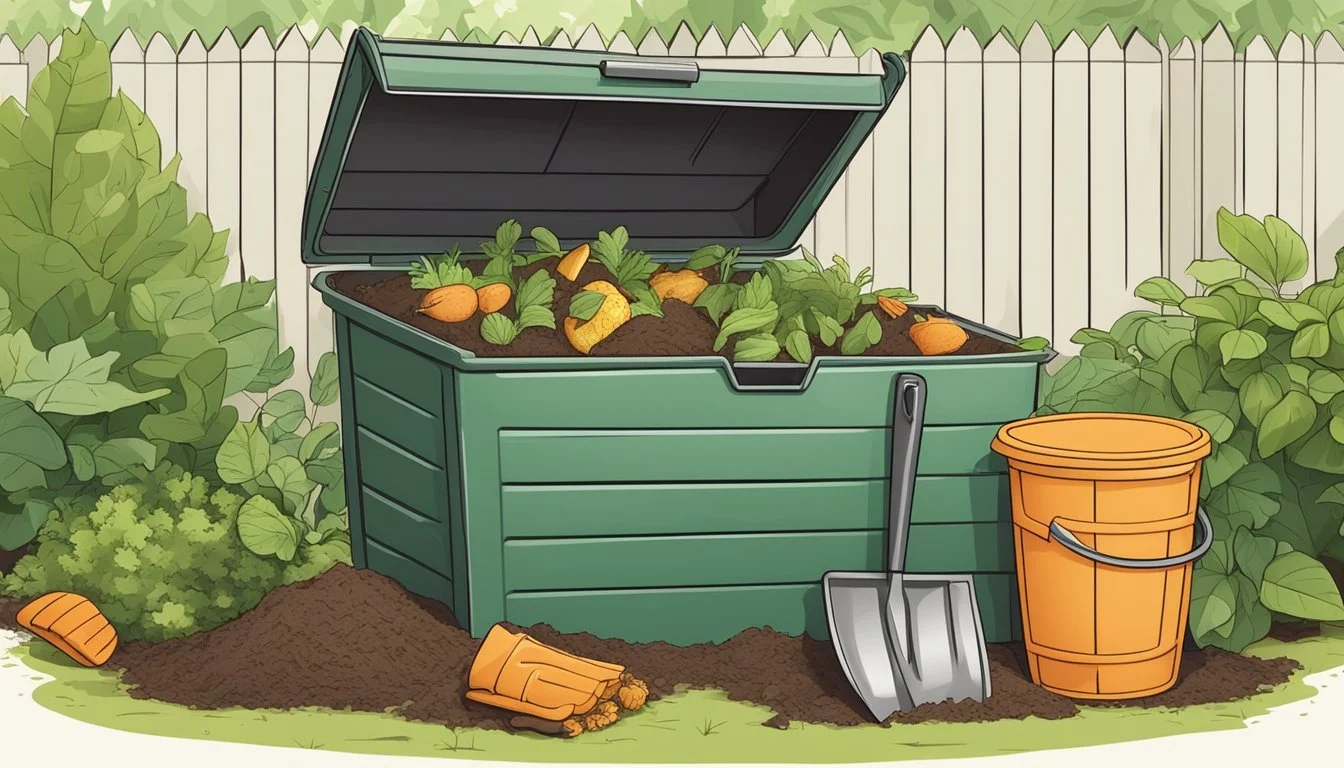Guide to Composting in New Braunfels, TX
Essential Tips for Local Residents
Composting in New Braunfels, Texas, offers an environmentally friendly solution for reducing waste and enriching garden soil. This practice, which turns organic matter like kitchen scraps and yard waste into valuable fertilizer, is gaining traction among residents looking to support sustainability and improve their garden’s health. The city facilitates green waste curbside collection, demonstrating its commitment to eco-friendly waste management. Residents can participate by placing plant trimmings in city-provided green waste paper bags or securely bundling them with rope or twine for pickup on the same day as recycling, a service provided exclusively for residential ratepayers.
Local businesses in New Braunfels also recognize the benefits of composting, providing resources and supplies to assist both novice and experienced composters. Establishments such as New Braunfels Feed & Supply emphasize compo sting's role in nourishing gardens cost-effectively while upholding the principles of waste reduction and sustainability. Additionally, educational resources are available for those interested in native plant cultivation, enriched by the application of quality compost, which supports the diverse Texas ecosystem.
Understanding the proper techniques and benefits of composting is essential for success. By learning how to balance greens, like vegetable scraps, with browns, such as leaves and paper, residents can create a potent and nutrient-rich compost. This not only benefits gardeners but also aligns with the broader community emphasis on conservation and responsible environmental stewardship across central Texas.
Basics of Composting
Composting is a widely adopted method in New Braunfels for turning organic waste into valuable nutrients for gardens. It greatly reduces waste and enriches the local ecosystem.
What Is Composting?
Composting is the process of recycling organic material, such as leaves, fruit and vegetable scraps, and yard trimmings, into a soil conditioner. The process is driven by microorganisms such as bacteria and fungi that break down organic matter, creating a nutrient-rich product, often referred to simply as "compost". This compost is then used to improve soil health, providing a rich growing medium for plants in a garden.
Benefits of Composting
Reduces Waste: Composting converts materials that would otherwise fill landfills into a useful product, significantly reducing municipal waste.
Nourishes Gardens: Compost enhances soil fertility, providing gardens with a rich, natural fertilizer full of essential nutrients.
By composting, residents not only reduce waste but also bolster the health and productivity of their garden landscapes.
Starting Your Compost Pile
Composting is a valuable practice for any garden enthusiast in New Braunfels, TX. It transforms green waste into nutrient-rich mulch that benefits gardens and landscapes. To establish a successful compost pile, one should consider location, materials, and proper layering techniques.
Choosing the Right Location
Finding an optimal spot for a compost pile is crucial. It should be a level area with good drainage to prevent waterlogging. Proximity to the garden is beneficial for easy access, yet it should also be out of direct sunlight to maintain a more consistent temperature.
What to Compost
A balanced mix of brown and green materials is essential for home composting:
Greens: grass clippings, fruit and vegetable scraps
Browns: dry leaves, twigs, shredded cardboard
Materials like meat, dairy, and oils should be avoided as they can attract pests and cause odors.
Layering Your Compost
Layering is important for efficient decomposition:
Start with a thick layer of coarse twigs for aeration.
Add a layer of green waste, followed by brown material.
Keep the pile moist but not waterlogged.
Turn the pile regularly to provide oxygen and speed up the composting process.
Composting Methods
Composting is an effective way to recycle organic waste into a nutrient-rich soil amendment. In New Braunfels, residents have different methods available to turn their kitchen scraps and yard waste into compost. Each method requires a level of aeration and moisture to promote the decomposition process.
Backyard Composting
Backyard composting is a straightforward method for homeowners to manage their organic waste. It involves layering green materials like vegetable scraps with brown materials such as leaves and shredded paper. Aeration is crucial in this process, with the compost requiring regular turning to introduce oxygen and speed up decomposition. Building or purchasing a compost bin with proper ventilation can greatly aid in managing moisture levels to maintain the dampness of a wrung-out sponge.
Tumbler Composting
Tumbler composting provides an easy and efficient way to mix compost materials. These composters are sealed barrels that are turned to mix the composting materials. This method reduces the need for manual aeration and helps maintain optimal levels of moisture, as the enclosed design of tumblers minimizes the evaporation of water. Tumbler composting is ideal for those who prefer a tidier and more contained composting setup.
Vermicomposting
Vermicomposting or worm composting is the process of using red wiggler worms to transform organic waste into vermicompost. This method is efficient in breaking down food scraps into high-quality compost and can be done indoors or outdoors. Vermicomposting systems typically consist of container construction, where bedding material such as shredded paper bags is used to house the worms and the kitchen scraps. Proper aeration and moisture are essential, ensuring the worm habitat stays conducive for the worms to thrive and process the organic material.
Maintaining Your Compost
Proper maintenance is crucial for a thriving compost system. It involves careful monitoring and adjustments to aeration, moisture levels, and temperature to ensure efficient decomposition.
Aeration and Turning
Compost requires oxygen to support the aerobic bacteria that break down organic materials. Aeration can be achieved by regularly turning the compost using a pitchfork or a compost aerator tool. This process should occur about once a week and is especially important in the hotter months of summer in New Braunfels, TX, as microbial activity increases. Turning not only incorporates oxygen but also helps to mix the materials for more uniform decomposition.
Moisture and Temperature Control
The right balance of moisture is key to composting; your pile should feel like a wrung-out sponge. If the compost is too dry, microbial activity slows down, so add water gradually and turn the pile to evenly distribute moisture. Conversely, if it's too wet, create larger air pockets by turning more frequently and adding dry, brown materials such as leaves or shredded paper.
Temperature is an indicator of microbial activity within the compost pile. A hot core signals decomposition is underway. In cold weather, insulating the pile with a tarp or adding more green materials can help maintain heat. However, be cautious of overheating in New Braunfels' summers—maintain adequate moisture, and ensure the pile doesn't dry out.
Using Your Compost
Properly utilized, compost can transform a garden, providing a rich, nurturing medium for plants to thrive. This section outlines clear steps to help gardeners in New Braunfels, TX discern when their compost is garden-ready and how to apply it effectively.
When Is Compost Ready?
Compost readiness is critical for garden success. It typically achieves maturity when it appears dark, crumbly, and is devoid of the original organic material identities. To test, one may perform a simple bag test by placing a sample in a sealed bag and sniffing it after a few days; an earthy smell indicates that the compost is ready to use. It's also advised to let the completed compost cure for two to four weeks before use, allowing the microbial activity to stabilize. Check the city's official composting guidelines for local specifics.
Applying Compost in Gardens
Compost application can invigorate a garden's soil, encouraging robust plant growth. In New Braunfels' gardens, compost should be used primarily as a soil amendment. One can mix two inches of compost into the top six inches of soil before planting. For established gardens, a light layer of compost can act as mulch, aiding in moisture retention and soil health. Mulch should not come into direct contact with plant stems or tree trunks to avoid rot.
To apply compost as mulch, spread a 2 to 4-inch layer around plants, taking care not to exceed this amount to ensure proper air and water movement. Regularly applying compost as mulch can also help suppress weeds and add a steady supply of nutrients to the garden.
Troubleshooting Common Composting Problems
In New Braunfels, TX, composting can be an efficient way to recycle organic waste into nutrient-rich soil amendments for gardens. However, even the most well-maintained compost piles can encounter issues. This section provides solutions for the two common composting problems: unpleasant odors and uninvited pests or animals.
Odor Issues
Cause: A compost pile might emit a strong smell if it's too wet, has an overabundance of nitrogen-rich 'green' materials, or is not aerated properly.
Solution: Balancing the compost materials by adding carbon-rich 'brown' materials such as dry leaves or cardboard can help. Regularly turning the compost with a spade or fork introduces oxygen, which is vital for decomposition and reduces odor.
Pests and Animals
Attractants: Unprotected compost heaps can attract rodents and insects that are in search of food.
Preventive Measures:
Enclosure: Place the compost in a bin with a secure lid or cover it with a tarp to deter animals.
Layering: Ensure each addition of kitchen scraps is covered with a layer of browns to mask odors and create a barrier.
Maintenance: Turn the pile regularly with a pitchfork, and check for signs of tunneling or nesting activities, which can indicate the presence of pests.
By addressing these common composting problems, residents of New Braunfels can efficiently convert their organic waste into valuable compost without unwanted odors or pest issues.
Composting in New Braunfels
New Braunfels, nestled in the Texas Hill Country, has embraced the environmental benefits of composting, offering local regulations and support alongside community initiatives to inspire residents and businesses to contribute to a greener future.
Local Regulations and Support
The City of New Braunfels provides clear guidelines for residents looking to start or maintain composting efforts. Green waste should be placed at the curb no earlier than the specified time the day before collection and no later than 6:30 a.m. on collection day. New Braunfels limits the green waste bags to 10 per week, and the bags must be rolled closed without the use of tapes or staples. Additional information regarding what can be put in a green waste bag can be found on the city's official website.
The City Recycle Center also plays a crucial role in these efforts, accepting various types of green waste and ensuring it is processed correctly. Residents and businesses are encouraged to participate in these programs, contributing to the city's sustainability goals.
Community Composting Initiatives
Community gardening and composting initiatives are taking root in New Braunfels. Local businesses like New Braunfels Feed & Supply emphasize the importance of composting by offering composting clinics and workshops, where individuals can learn about the benefits of composting and how to effectively turn their organic waste into nutrient-rich soil amendments.
Additionally, there is a push for more communal composting projects, which allow members of the community to collectively compost their green waste. This collective approach not only reduces waste but also fosters a sense of community and shared responsibility for the local environment.
Eco-Friendly Waste Management
In New Braunfels, Texas, residents have opportunities to partake in eco-friendly waste management practices that significantly reduce environmental impact. These include strategies for reducing household waste and engaging in recycling and composting programs.
Reducing Household Waste
Residents can make a substantial difference by minimizing the waste they generate. One actionable measure is to use reusable shopping bags, which cuts down on the need for single-use plastic bags, often provided by local retailers. They can also reduce waste by purchasing products with less packaging, opting for bulk items when possible, and repairing items instead of discarding them.
Recycling and Composting
Recycling programs in New Braunfels allow citizens to responsibly dispose of materials such as paper, glass, and certain plastics. For organic waste, residents can turn to composting, a method of recycling kitchen and yard waste into nutrient-rich soil amendments. The city’s Green Waste program advocates for using biodegradable paper bags or bundling plant trimmings for curbside collection, further reducing the amount of trash sent to landfills.
Advanced Topics in Composting
As composting grows in popularity, New Braunfels, TX, remains at the forefront by embracing industrial composting facilities and innovations in composting technology. These advancements represent significant strides in waste management practices within the region.
Industrial Composting
Industrial composting enables larger volumes of organic waste processing compared to traditional home composting setups. Businesses in the area, including large food service and agricultural operations, have adopted this method to handle waste more effectively and sustainably. An industrial process typically involves a controlled environment where temperature and moisture levels are optimized to accelerate the decomposition process, which translates to rapid turnaround times and high-quality compost for use in local gardens and landscaping.
Innovations in Composting Technology
The integration of innovations in composting technology has made the process more efficient and accessible to different scales of operations. Advancements include in-vessel composters that can handle a variety of organic waste, including meat and dairy, which are typically challenging to compost traditionally. Moreover, monitoring technology allows for real-time data collection and control systems to manage aeration, temperature, and humidity — factors critical to speeding up the composting process and ensuring pathogen kill-off. New Braunfels has seen businesses adopt these technologies, promoting a more circular economy and reducing the municipality's ecological footprint.
Cost Considerations
When planning to start composting in New Braunfels, it is crucial for residents to consider the costs involved. This section covers essential financial factors such as setting a budget and the expenses related to purchasing composting bins and tools.
Setting a Composting Budget
In New Braunfels, TX, individuals interested in composting should first determine their budget. Prices vary widely depending on the scale and complexity of the composting system. A simple pile may require minimal investment, while engineered composting bins can increase the cost. Budgeting needs to account for materials to construct the compost pile, such as iron fencing or wood slats, which are durable and affordable options.
Cost of Composting Bins and Tools
The price of composting bins and tools can differ based on materials and quality. Basic plastic bins may start at a lower price point, while higher-end models, often made of wood or metal, can be pricier but offer longer durability. Tools such as pitchforks, aerators, or compost thermometers add to the cost. For those in New Braunfels looking to invest in these items, local supplies such as New Braunfels Feed & Supply provide an array of options to fit different budgets. It's advisable for residents to compare prices and opt for tools made of iron or stainless steel for longevity.
Composting and Community Engagement
Composting is a powerful tool for sustainability, especially when it involves active participation from the community. In New Braunfels, TX, nestled between the Comal and Guadalupe Rivers, community engagement has transformed composting into a collective effort, connecting individuals, schools, and local landmarks like Gruene Hall with the broader goal of environmental stewardship.
Educational Workshops
New Braunfels takes pride in educating its residents about the benefits of composting. Workshops are frequently organized to demonstrate effective composting techniques and introduce the community to the ecological impacts of their efforts. Participants learn how to turn their kitchen scraps and yard waste into nutrient-rich compost, which can then be used to enhance local soils. These workshops also cover the importance of compost in maintaining the natural beauty of the Comal and Guadalupe Rivers, as well as how it supports the city’s efforts towards sustainability.
Composting in Schools
The schools in New Braunfels play a crucial role in fostering a culture of composting among young citizens. Educational programs are integrated into the curriculum to inspire students to engage in composting projects. They are taught the science behind it and the impact it has on reducing landfill waste. This hands-on approach not only contributes to New Braunfels' green initiatives but also equips students with the knowledge and skills they need to be environmentally responsible as they grow up. Across the city, schools have become vital in promoting community composting efforts, stretching as far as San Antonio, and form an essential link in the chain of environmental education and action.
Lifestyle Integration
Integrating composting into your New Braunfels lifestyle can be a seamless experience, whether you're a homeowner or a renter, and even if space is at a premium. Practical solutions are available that respect your living situation, provide convenience, and utilize materials like rocks for drainage in your compost setup.
Composting for Renters
Renters in New Braunfels might feel challenged by the perceived need for large outdoor spaces to compost. However, vermicomposting—the use of worms to convert organic waste into fertilizer—is an excellent option for apartment dwellers. This method is not only space-efficient but also odorless, making it suitable for indoor use. Renters can utilize small bins that fit neatly under the sink or in a closet, ensuring convenience and cleanliness.
Small-Space Composting
For those with limited outdoor areas, small-space composting techniques make it possible to reduce waste and contribute to a greener environment. One can use a tumbler composter, which is compact and can be placed on a balcony or small patio. Utilizing layers of green and brown materials, with rocks at the bottom for drainage, individuals can create rich compost without the need for a large compost pile.
Local Leisure and Environment
New Braunfels, TX boasts a variety of leisure activities and attractions that prioritize environmental stewardship. Residents and visitors can engage in practices that support sustainability while enjoying the natural and cultural amenities of the area.
Environmental-Friendly Activities
New Braunfels residents can enhance their green footprint by participating in activities that promote sustainability. Landa Park offers scenic picnic spots, a miniature train, and paddle-boating opportunities on the Comal River, integrating leisure with the appreciation for nature. For the more adventurous, Canyon Lake provides an idyllic setting for outdoor sports such as fishing, boating, and camping, all of which encourage environmental mindfulness.
Guidance on composting can be achieved through resources like New Braunfels Feed & Supply, which educates on sustainable practices. As a local store with strong community ties, it is a hub for acquiring composting knowledge and supplies, helping to reduce organic waste and nourish gardens throughout the city.
Local Attractions with Green Initiatives
New Braunfels is home to Schlitterbahn Waterpark, a leader in water conservation and recycling efforts. This attraction marries fun with eco-consciousness, offering visitors thrilling aquatic experiences that are mindful of resource use.
Gruene Hall, famed for being the oldest dance hall in Texas, not only brings in a crowd for live music but also contributes to the local culture without leaving a heavy carbon footprint. The ongoing popularity of Gruene Hall highlights how historic sites can be preserved and enjoyed sustainably.
Restaurants in the area often source locally-grown produce, supporting both local farmers and reducing transportation emissions. These dining spots provide a delicious opportunity for a weekend getaway or a simple escape for locals, merging gastronomic delight with environmental responsibility.
For those seeking an urban retreat, the proximity to Austin allows for easy access to a larger city's attractions while maintaining an eco-friendly focus during their stay. Whether it's a short trip or a longer escape, visitors have the option to explore with a clean conscience.
Conclusion
Composting in New Braunfels represents a straightforward and impactful way for the community to contribute to a healthier environment. By turning organic materials into a valuable soil amendment, residents are playing a crucial role in reducing waste that would otherwise occupy landfill space. In New Braunfels, composting is not only an individual activity but also a collective effort with services like Green Waste Curbside Collection supporting these endeavors.
For gardeners and homeowners, composting enriches the soil, fostering plant growth and enhancing the vibrancy of gardens and landscapes within the city. Moreover, educational resources such as Basics of Composting provide valuable information for beginners and experienced composters alike.
Incorporating this practice into daily life contributes significantly to the sustainability goals of New Braunfels. The community is encouraged to continue and expand its efforts in composting, ensuring that current and future generations can enjoy a clean and fertile environment. With guidance available from local sources like New Braunfels Feed & Supply, residents have the tools and knowledge to succeed in these sustainability efforts.


